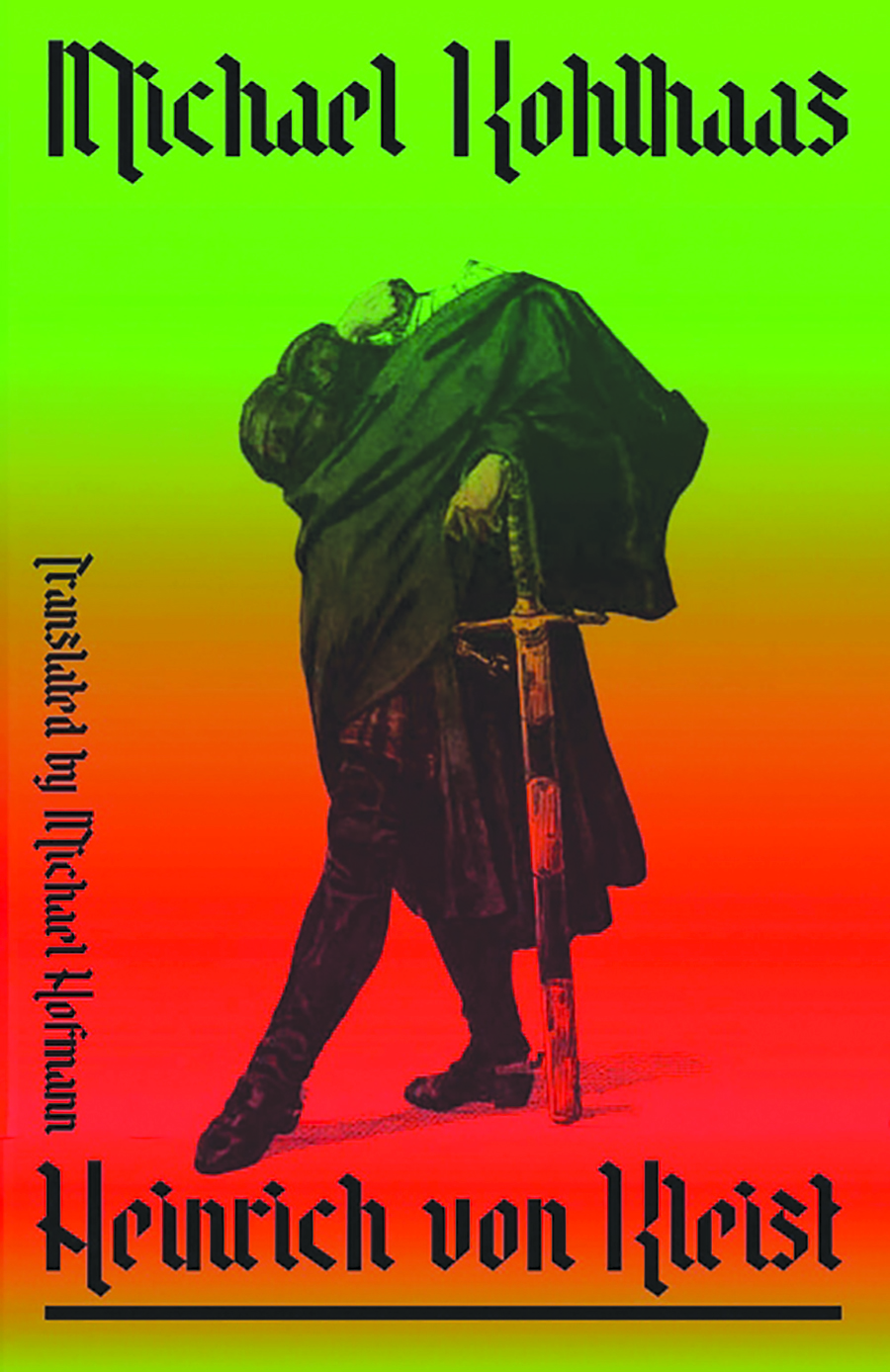What do you do when you’ve been wronged — and when usual channels for redress fail and the system is rigged against your petitions at every step? Do you accept the outcome? Or do you go “Joker mode,” embarking on a fanatical, violent quest for justice?
So goes the narrative of Heinrich von Kleist’s novella Michael Kohlhaas, available in a new translation by Michael Hofmann from New Directions Publishing. Set in the time of Martin Luther, the novel tells the story of Brandenburg horse merchant Michael Kohlhaas, who is detained en route to selling his horses in Dresden by an official of a local noble, Wenzel von Tronka. The reason: missing transit papers. The official demands that Kohlhaas leave two of his horses at Tronka’s castle as collateral before continuing on his journey to Dresden.

When Kohlhaas arrives in Dresden, however, he learns that the official had no right to demand the collateral in the first place. He returns to the castle only to find his horses malnourished and abused and the caretaker he left with them beaten and driven out of town. Kohlhaas goes home and sues Tronka for the costs of rehabilitating his horses and treating his caretaker. But his lawsuits go nowhere thanks to the network of cronyism protecting the nobility. As a last resort, his wife offers to deliver a letter to the elector of Brandenburg. But when she is brought back to him comatose and mortally wounded, he trades his estate for an arsenal and a band of soldiers. So begins his mad quest for revenge, leaving a path of destruction across the labyrinthine, overlapping jurisdictions of the Holy Roman Empire — and ironically leading him right back into the medieval legal system whose shortcomings spurred him to violence in the first place. Kohlhaas’s fate is ultimately determined by forces beyond the presumed functions of the legal system: the political tensions between the electorates of Saxony and Brandenburg and the supernatural intervention of a mysterious gypsy.
First published in fragments in the literary journal Phoebus in 1808 and in full in 1810, Michael Kohlhaas was written against a background of immense political upheaval — the French Revolution, the Napoleonic wars, and the end of the Holy Roman Empire. More generally, Michael Kohlhaas was written when the transition from feudalism to capitalism and the modern nation-state was at its most violent. A moody artist born into the Prussian military aristocracy, Kleist held ambiguous and nuanced political views. His nationalist tendencies, most prominently expressed in his war play Die Hermannsschlacht, were a reaction not only to the cowardice and incompetence of the Prussian military in the face of Napoleon’s armies but to the disunity of German culture. As an aristocrat, he was in close proximity to the halls of power and found a job in the Prussian bureaucracy but was nonetheless always a prodigal son. He thought of political questions not as abstract ideas and ideological schemes but as concrete problems, matters of practical human experience.
Michael Kohlhaas is thus a novella about justice — not in the classical sense of civic virtue but as a vehicle of intimately personal drives in a disjointed, multilayered world determined by forces that exceed individual understanding. While the horse-dealer Kohlhaas is presented as the enlightened citizen who challenges the arbitrary feudal justice of the noble Tronka, the text questions the notion that justice, and with it the bureaucratic governance of the nation-state, can ever function predictably and objectively. In a fascinating episode, the renegade Kohlhaas travels to Wittenberg and meets Martin Luther, who tells Kohlhaas to disband his army and once again seek a peaceful resolution. Yet the great theologian’s arguments are grounded more in the pragmatic political concern for public order than in any divine truth.
Indeed, Kohlhaas himself seems to be the only character who claims to be driven by some absolute ideal rather than simple considerations of short-term political priorities. In a sense, what he really is up against is not a sinister and regressive legal system but the vanity and stupidity of a few privileged people (as abundant today as in 16th-century Germany). Alas, Kohlhaas too is ultimately motivated by a need for order that overcomes his anarchic crusade for justice. His stubborn belief in the righteousness of his own cause and the reliability of the proper legal channels leads to his downfall, when he disbands his victorious army so that his case may finally go to trial. While Kohlhaas gets the satisfaction he desires — his case succeeds, and the house of Tronka is forced to pay restitution — he is nevertheless executed for his rebellion, the very act that made such a verdict possible in the first place. He made his point, but was it really worth it? Like Kleist himself, who ended his life at age 34 in a suicide pact with a terminally ill friend, Kohlhaas is driven by a restless, romantic striving toward an illusory ideal, invariably cut short by the cruel irony of the real world. But Kleist is nothing if not self-aware, portraying Kohlhaas’s solipsistic blindness as the other side of his righteous lucidity.
It should come as no surprise that Michael Kohlhaas delighted such modernist readers as Franz Kafka, whose own writing typically featured isolated protagonists facing strange predicaments at the hands of arbitrary and impenetrable bureaucratic institutions. But for the contemporary American reader living in the time of Jeffrey Epstein and the distributed conspiracy of modern government, Kohlhaas’s popular uprising might instead signify a sort of golden age, a time when vain and stupid elites could be held accountable, even if only at the point of the sword.
Mike Crumplar is a writer and editor living in Washington, D.C. Follow him on Twitter @mcrumps.
